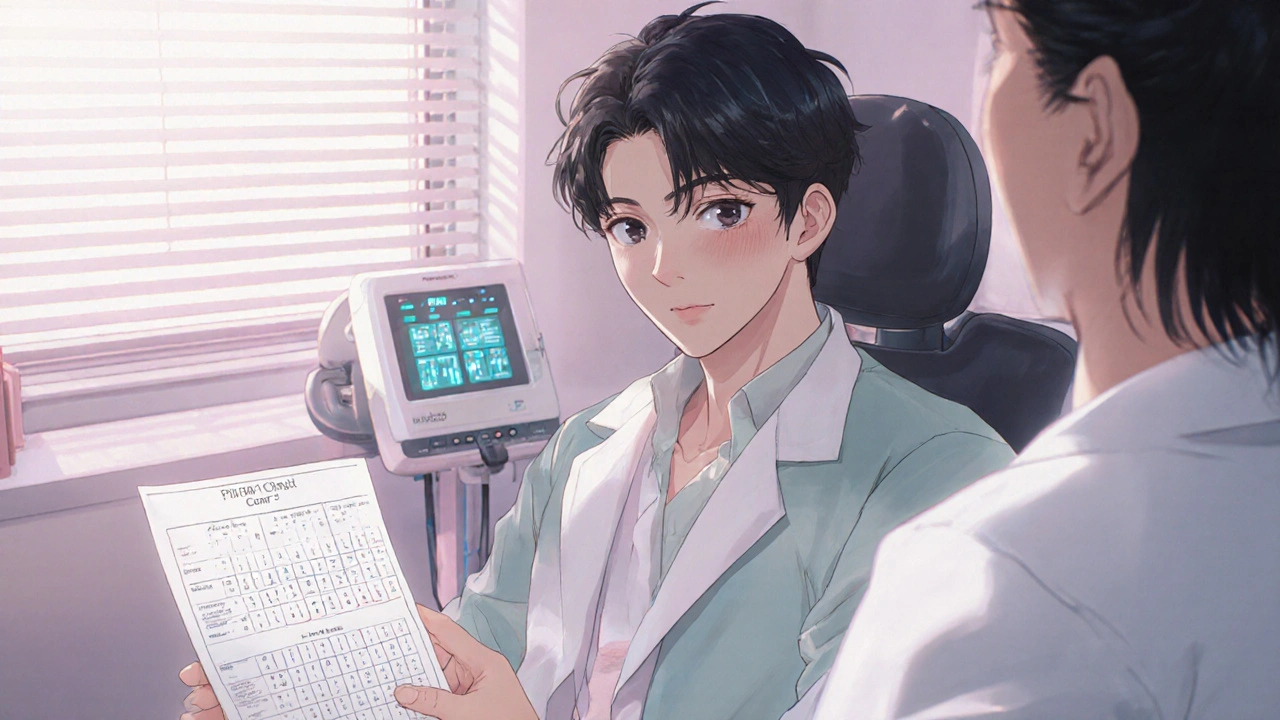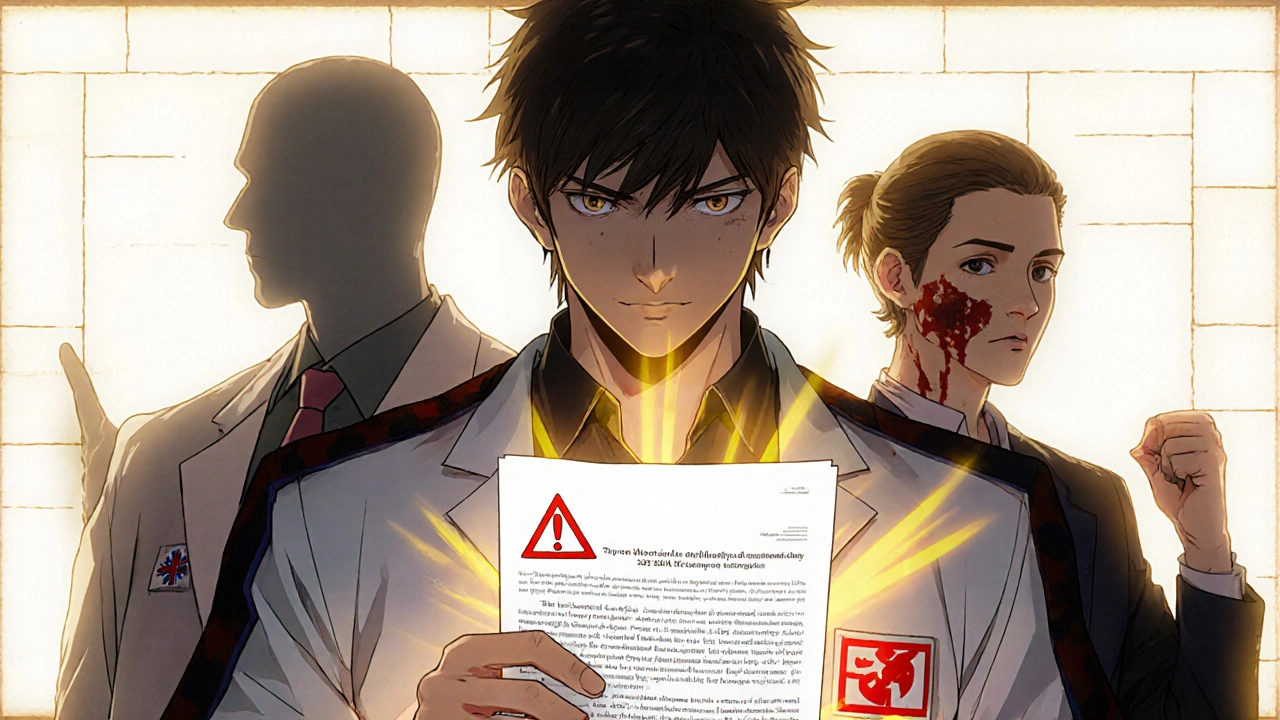
Blood Thinner Procedure Guide
Your Blood Thinner & Procedure
Personalized Recommendations
Why Your Blood Thinners Matter More Than You Think Before a Cosmetic Procedure
If you’re taking blood thinners-whether it’s warfarin, apixaban, aspirin, or something else-and you’re thinking about getting a cosmetic procedure, you need to know this: stopping your medication isn’t always safer. For years, doctors told patients to stop blood thinners before surgery. That advice is outdated. In fact, stopping them can be more dangerous than keeping them on.
Think about it: you’re on these meds because you have a real risk of stroke, clot, or heart attack. A 2014 study of over 160 facial surgeons found 46 serious clotting events-including 3 deaths and 24 strokes-after patients stopped their blood thinners for minor procedures. Half of those happened after warfarin was stopped. The risk isn’t theoretical. It’s happening right now, in clinics and operating rooms.
Here’s the reality: most cosmetic procedures-even ones that sound serious-are actually low-risk for bleeding. Shave biopsies, small excisions, laser treatments, even some filler injections-these rarely cause dangerous bleeding if you’re on anticoagulants. The bigger danger? Stopping your meds.
Not All Blood Thinners Are the Same
When you hear "blood thinner," you might think it’s all the same. It’s not. There are three main types, and each behaves differently in your body.
- Warfarin is the old-school option. It takes days to clear from your system. Doctors check your INR (a blood test) to see how thin your blood is. If your INR is under 3.5, most experts say you can safely keep taking it for minor procedures. But if you’re on warfarin and you stop it, even for a few days, your risk of stroke jumps.
- DOACs (like rivaroxaban, apixaban, dabigatran) are newer. They work fast and leave your body fast-usually in 9 to 17 hours. That means for many procedures, you can just skip your morning dose the day of surgery and restart the next day. No need to stop days ahead.
- Antiplatelets like aspirin and clopidogrel? They barely increase bleeding risk in cosmetic procedures. Multiple studies show no significant rise in bruising or bleeding when people keep taking aspirin before skin surgery. You don’t need to stop.
One 2023 review found that patients who kept taking DOACs had a 1.74% chance of bleeding complications. Those who stopped? Their bleeding rate was actually higher-17.65% compared to 9.82%-but the difference wasn’t statistically meaningful. In other words: stopping didn’t help. And it might’ve hurt.
What Procedures Are Safe? What’s Riskier?
Not all cosmetic treatments are created equal when it comes to bleeding. The key is understanding how vascular the area is and how deep the procedure goes.
Low-risk procedures-where you almost always keep your blood thinners:
- Shave biopsies
- Small skin excisions (under 2 cm)
- Laser treatments (fractional CO2, IPL, pulsed dye)
- Botulinum toxin injections (Botox)
- Most dermal fillers (especially in cheeks, temples, jawline)
Moderate-risk procedures-where you might skip one dose:
- Larger excisions (over 2 cm)
- Chemical peels (medium depth)
- Some non-surgical body contouring (like radiofrequency or ultrasound)
For these, your doctor may ask you to skip your DOAC the morning of the procedure. Warfarin? Usually kept going if INR is under 3.5.
High-risk procedures-where stopping may be considered:
- Facial plastic surgery (rhinoplasty, facelift, eyelid surgery)
- Mohs surgery on the nose or ears
- Liposuction with large volume removal
- Body contouring after massive weight loss
Why? These involve major blood vessels, flaps of skin, or large areas of tissue manipulation. Bleeding here can lead to hematomas, poor healing, or even skin graft failure. For these, your surgeon and cardiologist may agree to pause DOACs for 24-48 hours before surgery-only if your clotting risk is low.
The Big Mistake: Bridging With Heparin
Some patients are told they need to "bridge"-stop their DOAC or warfarin and switch to daily heparin shots to prevent clots. This sounds logical. But it’s not.
Studies show bridging doesn’t reduce clots in cosmetic procedures. It only increases bleeding. A 2023 review in the British Society of Dermatology guidelines says: "Bridging is generally not recommended for most cosmetic procedures." Why? Because the risk of a hematoma or excessive bruising outweighs any tiny benefit.
If you’re on warfarin and your INR is under 3.5, you don’t need bridging. If you’re on apixaban or rivaroxaban? You don’t need it at all. Bridging is a relic of old-school thinking. It’s not evidence-based for cosmetic work.
What About Bruising? It’s Normal-But Manageable
Yes, you’ll probably bruise more. That’s expected. Anticoagulants make your blood less likely to clot on the spot. So if you get a needle poke or a tiny cut, you’ll bleed a little longer under the skin.
But here’s what you need to know: bruising ≠ dangerous bleeding. A purple patch around your eye after filler? That’s not an emergency. It’s just a side effect. It fades in 1-2 weeks.
What’s dangerous? Swelling that keeps growing after 24 hours, severe pain, vision changes after filler near the eyes, or a hard, warm lump under your skin. Those need immediate attention.
Here’s how to minimize bruising:
- Stop NSAIDs (ibuprofen, naproxen) 5-7 days before-unless your doctor says otherwise
- Avoid alcohol 48 hours before and after
- Use arnica gel or oral supplements (if approved by your doctor)
- Apply cold packs right after treatment
- Keep your head elevated the first night
Don’t panic if you see color. Do panic if the area gets bigger, harder, or more painful.

Who Decides? Your Doctor, Not Your Aesthetician
Here’s the hard truth: your aesthetician or medspa staff can’t make this call. They’re not trained to weigh thrombotic risk against bleeding risk. That’s a job for your doctor-your cardiologist, hematologist, or primary care provider.
Don’t let a clinic pressure you into stopping your meds. If they say, "We can’t do this if you’re on blood thinners," they’re either misinformed or avoiding liability. The evidence says otherwise.
Ask for a consultation with your prescribing doctor. Bring the British Society of Dermatologists 2023 Guidance with you. Or print out the ASPS guidelines. Most doctors will agree: for minor procedures, keep going.
And if your doctor says to stop? Ask why. What’s your personal clotting risk? What’s your INR? Are you on one drug or two? The answer should be specific-not a blanket rule.
What If You’re on Two Blood Thinners?
Some people take both an anticoagulant and an antiplatelet-like aspirin plus apixaban. That’s common after stents or after a heart attack. This doubles the bleeding risk.
For minor procedures, most experts still recommend continuing both. For moderate or high-risk procedures, your team might consider stopping the antiplatelet (like aspirin) while keeping the DOAC. Never stop both.
The British Society of Dermatology says: "Delay procedures if possible until the patient is on monotherapy." In other words: if you can safely get off one drug before your procedure, do it. But don’t rush it.
Bottom Line: Keep Going-Unless Your Doctor Says Otherwise
Here’s the simplest takeaway:
- If you’re on aspirin or clopidogrel: keep taking it.
- If you’re on a DOAC (apixaban, rivaroxaban, etc.): skip your morning dose only if it’s a moderate/high-risk procedure.
- If you’re on warfarin: keep taking it if your INR is under 3.5.
- Never bridge with heparin for cosmetic work.
- Bruising is normal. Bleeding that keeps growing is not.
- Always involve your prescribing doctor-not just the aesthetic provider.
The goal isn’t to avoid all bleeding. It’s to avoid deadly clots. And for most people, the real danger isn’t the procedure. It’s stopping the medicine that keeps them alive.
Comments (11)
-
Sara Mörtsell October 29, 2025Stop stopping your meds. Period. I had a facelift on apixaban and bruised like a rainbow but I didn't have a stroke. Your aesthetician doesn't know your heart. Your cardiologist does. Don't let fear make you stupid.
-
Rhonda Gentz October 29, 2025It's funny how we treat our bodies like machines you can just tweak without understanding the system. Blood thinners aren't just pills-they're lifelines woven into our biology. Stopping them because someone in a spa coat says so... that's not medical advice. That's gambling with your next heartbeat.
-
Alexa Ara October 31, 2025You got this. Seriously. If you're on blood thinners and you're thinking about a procedure, you're already being responsible. Keep going. Bruising sucks, but it fades. A clot doesn't. Talk to your doc. Bring the guidelines. You're not being difficult-you're being smart.
-
Olan Kinsella November 2, 2025They told me to stop warfarin for a brow lift. I didn't. They screamed. I lived. Three weeks later my cheek was purple but my brain worked. The system is broken. Clinics want liability, not patients. Heparin bridging? That's not medicine. That's corporate fear dressed in scrubs.
-
Kat Sal November 3, 2025I'm on apixaban and just got filler last month. Bruised like a grape, but I didn't die. And guess what? My doctor said keep going. You're not being reckless-you're being informed. Don't let anyone make you feel guilty for staying alive.
-
Rebecca Breslin November 3, 2025You all are missing the point. The real issue is that aesthetic clinics are run by people who never took a single biology class. They read a pamphlet and think they're surgeons. That's why you need to go to a board-certified plastic surgeon who actually understands anticoagulants-not some Instagram influencer with a dermal gun.
-
Kierstead January November 3, 2025Let me guess-you're one of those people who thinks aspirin is harmless. Newsflash: it's not. You think you're being smart by keeping your meds? You're just delaying the inevitable. Bruising is the least of your worries. What about internal bleeding? What about the ER visit at 3am? You're not a hero. You're a liability.
-
Imogen Levermore November 5, 2025I'm not saying this is fake... but have you ever heard of the 2023 'Bridging Scandal'? 🤫 The FDA knew. The journals knew. But they buried it. Heparin isn't dangerous-it's a distraction. They want you scared so you'll pay for 'premium' protocols. I'm not taking my DOAC. I'm waiting for the truth to leak. 🌐💉 #CosmeticConspiracy
-
Chris Dockter November 6, 2025Stop overcomplicating this. If you're on blood thinners and you're getting a procedure, you're already risking your life. The fact that you're even asking this question means you're not ready. Don't do it. Just don't. You think bruising is bad? Try a brain bleed. Then come back and tell me how brave you were.
-
Gordon Oluoch November 6, 2025The evidence cited here is cherry-picked. Studies on minor procedures do not extrapolate to complex surgeries. You cannot ignore the physiological reality: anticoagulants impair hemostasis. The risk-benefit calculus is not one-size-fits-all. Your surgeon must evaluate your individual thrombotic profile, renal function, and procedural complexity. This post is dangerously oversimplified. You are not entitled to aesthetic results at the cost of your life.
-
Tyler Wolfe November 7, 2025I'm on rivaroxaban and had a chemical peel last week. Skipped my morning dose. Bruised a little but no drama. My doc said it was fine. Just talk to your real doctor-not the spa guy. And yeah, bruising sucks but it's not the end of the world. You're not broken. You're just taking care of yourself. Good job.
